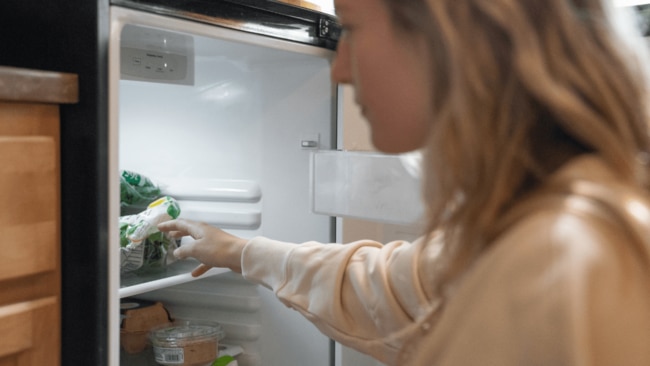What is the 90-30-50 diet and why is it going viral?
It claims to be the key to healthy weight loss
Lifestyle
Don't miss out on the headlines from Lifestyle. Followed categories will be added to My News.
The latest dieting craze to sweep the internet is said to provide a nutritionally balanced framework for healthy, long-term weight loss. But would an accredited nutritionist recommend it?
Every day the internet spits out another rule, recommendation or hot tip about how we should be nourishing our bodies. It’s as if one day, we’re told we should be spending our mornings chugging celery juice and eating overnight oats, and then next we’re instructed to fast completely until noon.
Now, the internet is obsessing over the 90-30-50 diet, the viral nutrition plan encouraging people to consume at least 90 grams of protein, 30 grams of fibre, and 50 grams of healthy fats daily.
But the problem with these ‘one-size-fits-all’ diets is that no single nutrition plan will perfectly suit every individual's dietary needs. Every person requires a tailored approach to their health and well-being, taking into account several key factors, such as their age, gender, preexisting health concerns and budget.
Luckily, accredited nutritionist Monique Cormack joins Body+Soul to set the record straight on the latest viral dieting craze.
Like what you see? Sign up to our bodyandsoul.com.au newsletter for more stories like this.
How nutritionally balanced is the 90-30-50 diet?
According to Cormack, the 90-30-50 diet appears to be a pretty well-balanced plan in comparison to more extreme internet fads, containing the key macronutrients humans need for optimal health.
“On the face of it, the approach encourages people to consume a reasonable amount of protein and healthy fats and prioritise foods that provide dietary fibre, which would hopefully be things like whole grain carbohydrates, vegetables and fruit,” explains the nutritionist.
Cormack is hesitant to recommend the exact framework to every individual however, “Typically we would assess protein requirements based on factors including body weight, age and activity levels,” she says. “If you just aim for around 90 grams, that may not be the right fit for you.”

While the plan certainly ticks the boxes in terms of including the essential macronutrients, and the advised fibre intake of 30 grams is a great goal to strive towards, Cormack says there are a few tweaks she’d make before recommending it to her clients.
“Consider your individual energy requirements and keep in mind that making it to 90 grams of protein and 50 grams of fats may not provide you with enough overall energy, so you may need to increase your overall macronutrient intake,” she says.
All up, Cormack says she’d prefer to see more flexibility when it comes to the plan’s approach to protein and fat, “Obviously the name of this diet is going to make people think about getting to 90 grams rather than contemplate their personal needs.”
The dietitian responsible for the 90-30-50 diet, Courtney Kassis, has consistently boasted the nutritional plan’s benefits across her social media platforms. In one post she writes, “Together, these nutrients work to increase metabolism, support fat-burning processes, promote satiety, balance blood sugar and increase lean muscle mass: ALL of which support optimal health and weight loss goals,” a statement Cormack is somewhat sceptical about.
“Yes, eating protein does help with balancing blood sugar and supports muscle mass... but you don't need the exact formula she promotes to get these benefits,” explains Cormack.
“Eating regularly does support your metabolism due to the thermic effect of food, but don't be fooled thinking the 90-30-50 target is going to have a significant impact on your metabolic rate. It's not a magic bullet.”

Is the 90-30-50 diet a safe weight loss method?
Though supporters of the viral diet boast the ‘unrestrictive’ parameters involved, Cormack has concerns the entire approach may potentially promote under-eating, given most people could meet the diet’s basic requirements on quite a low energy intake.
But, while the nutritionist would certainly tweak the method herself, she says the diet in its current form isn’t the most unsafe method out there, as long as people who subscribe to the diet for weight loss or maintenance don’t neglect the importance of consuming enough food to energise them throughout the day.
“To meet the requirements of protein, fibre and fats, you are going to need to eat a minimum amount of food and you're probably going to be eating quite a bit of fruit and veg to hit the fibre component,” she says on the nutritional benefits of the 90-30-50 diet.
“And I can see that Kassis does show herself eating some tasty, balanced-looking meals which include a good blend of foods including things like potatoes, bread, dairy products... things that usually get chucked out the window when people start "dieting". I do like to see that!” Adds Cormack.
More Coverage
Originally published as What is the 90-30-50 diet and why is it going viral?




